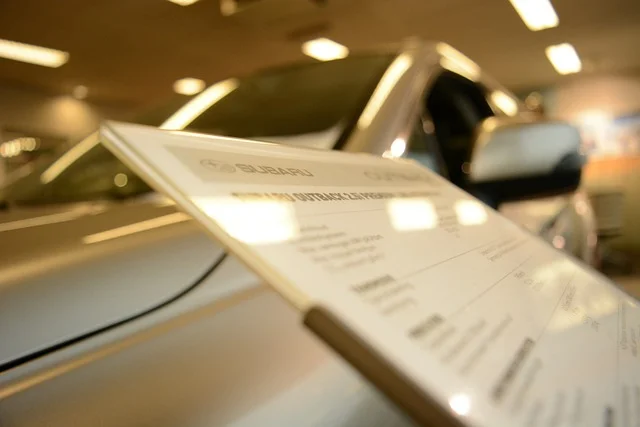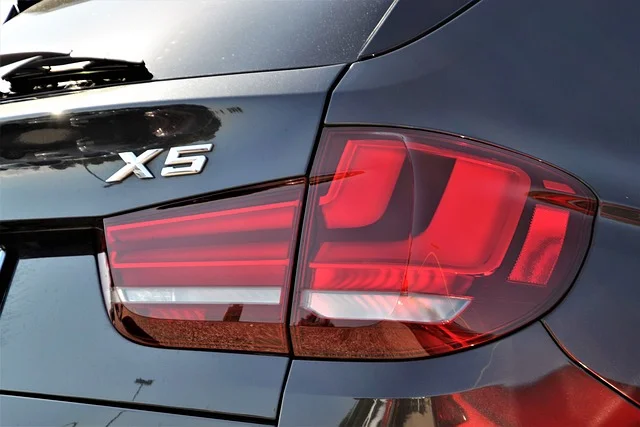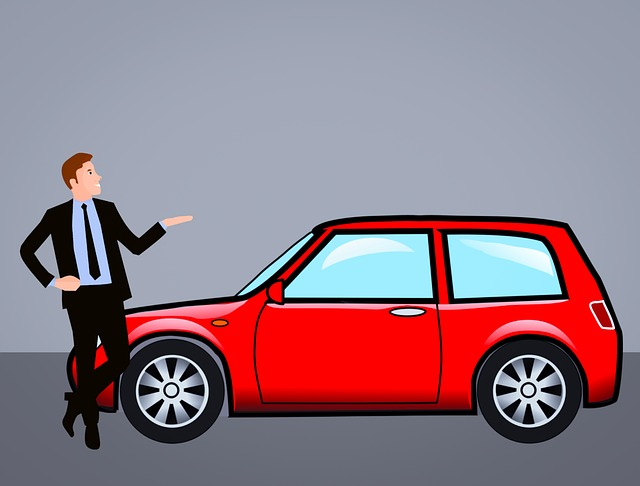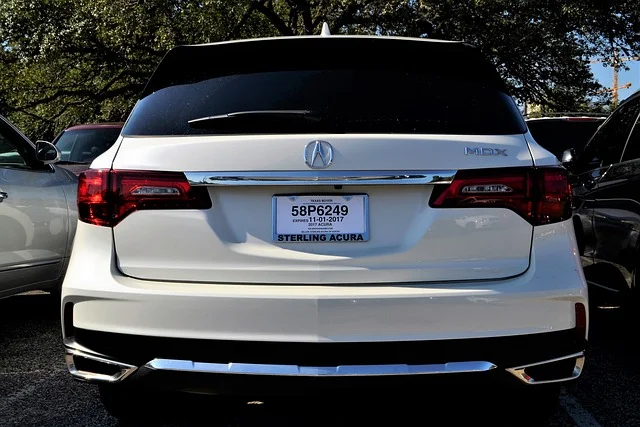Buying a used car can be an excellent way to save money, but it’s not without risks. One of the most frustrating situations is discovering damage on your newly purchased used car after you’ve already driven it home. If you’ve found yourself in this predicament, don’t panic – you may have options.
This article will guide you through the steps to take if you’ve found damage on a used car after purchase. We’ll explore your legal rights as a consumer in California, discuss the differences between buying from a dealer versus a private seller, and provide tips on how to protect yourself when making a used car purchase.
Whether you’re dealing with undisclosed defects, mechanical issues, or other problems, understanding your rights and knowing how to proceed can help you get through this challenging situation. Let’s dive into what you need to know and do if you’ve discovered unexpected damage on your recently bought used car.
KEY TAKEAWAYS
- Document everything: If you find damage after purchase, record all issues, communications, and repair attempts.
- Know your rights: Understand the differences between buying from a dealer versus a private seller, and familiarize yourself with California’s Lemon Law.
- Get professional help: Have a trusted mechanic inspect the car and consider consulting with an auto fraud attorney.
- Prevention is key: Always get a vehicle history report and pre-purchase inspection before buying a used car.
- Be cautious with “as-is” purchases: Even these sales may have some protections if the seller concealed known issues.
- Research thoroughly: Investigate common problems for the specific make and model you’re considering.

What to Do When You’ve Bought a Used Car with Problems
From a Dealership
If you’ve purchased a used car from a dealership and discovered problems, you may have some legal protections. In California, dealers are required by law to disclose certain issues that could affect the car’s value or safety. If the dealer failed to disclose known problems, you might be entitled to compensation for repairs or other related costs.
Key points to remember:
- Each state has different rules for used car sales
- Dealers must disclose known issues that could affect the car’s value
- If information was withheld, you may have grounds for compensation
From a Private Seller
Buying from a private seller requires extra caution. While private sales typically offer fewer legal protections, you’re not entirely without options if you find damage after purchase.
Consider these steps:
- Document the damage thoroughly
- Determine if the seller knew about the issue before the sale
- Gather any evidence that the problem existed prior to your purchase
In both cases, if you’ve found damage on a used car after purchase, it’s crucial to act quickly. Document everything, gather relevant paperwork, and consider seeking advice from a legal professional who specializes in auto fraud cases.
Remember, even with “as-is” purchases, you may have certain rights. Some issues, if they were known to the seller and not disclosed to you, could still be grounds for legal action. The key is to understand your rights and gather evidence to support your case.

What to Do If Your Recently Purchased Used Car Isn’t Working Properly
If you’ve just bought a used car and it’s not functioning as it should, you have several options:
- Document the issues: Keep detailed records of all problems you’re experiencing with the vehicle.
- Review your purchase agreement: Check for any warranties or guarantees that may cover the issues you’re facing.
- Contact the seller: Inform them about the problems, especially if they weren’t disclosed at the time of sale.
- Get a professional inspection: Have a certified mechanic examine the car to identify and document any issues.
- Research lemon laws: California has specific lemon laws that may apply to your situation, even for used cars.
- Consult a legal professional: An attorney experienced in auto fraud cases can advise you on the best course of action.
Understanding Lemon Laws in California
California’s lemon laws offer protection to consumers who purchase defective vehicles, including some used cars. Key points to remember:
- Lemon laws typically apply to cars still under the manufacturer’s warranty
- The law covers vehicles with substantial defects that impair their use, value, or safety
- To qualify, the problem must persist after a reasonable number of repair attempts
- In California, used cars may be covered if they’re still under the original warranty
Remember, lemon laws vary by state, so it’s important to understand California’s specific requirements. If you believe your used car might qualify as a lemon, don’t hesitate to seek legal advice to explore your options.
By taking these steps and understanding your rights, you can better navigate the challenges of finding damage on a used car after purchase.

Protecting Yourself When Buying a Used Car
To avoid finding damage on a used car after purchase, take these precautions:
- Research thoroughly: Look up reviews and common issues for the specific make and model you’re considering.
- Get a vehicle history report: This can reveal past accidents, repairs, and ownership history.
- Have a pre-purchase inspection: Ask a trusted mechanic to examine the car before you buy it. They can spot potential problems and estimate repair costs.
- Take it for a test drive: Pay attention to how the car handles and listen for any unusual noises.
- Read all documents carefully: Before signing anything, make sure you understand all terms and conditions.
- Ask questions: If something seems unclear or concerning, don’t hesitate to ask the seller for clarification.
Understanding Your Rights
Even with these precautions, you might still encounter issues. It’s important to know that:
- Laws governing used car sales aren’t always straightforward.
- Your rights may differ depending on whether you bought from a dealer or private seller.
- Some protections exist even for “as-is” purchases, especially if the seller knowingly concealed issues.
If you’ve found damage on a used car after purchase, document everything carefully. Take photos, keep repair receipts, and gather any communication with the seller. This information can be crucial if you need to pursue legal action.
Remember, while buying a used car can save money, it’s essential to balance potential savings with the risk of unexpected repairs. By taking your time, doing your homework, and understanding your rights, you can make a more informed decision and reduce the chances of unpleasant surprises after your purchase.

Steps to Take When Your Recently Purchased Used Car Has Issues
If you’ve recently purchased a used car and discovered it’s not working as it should, take these steps:
- Document the issues: Keep detailed records of all problems you’re experiencing with the vehicle. Take photos or videos if possible.
- Review your purchase agreement: Check for any warranties or guarantees that may cover the issues you’re facing.
- Contact the seller: Inform the dealer or private seller about the problems, especially if they weren’t disclosed at the time of sale.
- Get a professional inspection: Have a certified mechanic examine the car to identify and document any issues. This can provide valuable evidence if you need to take legal action.
- Research your rights: Familiarize yourself with California’s consumer protection laws, including the Lemon Law for used cars.
- Consider your options: Depending on the severity of the issues and the circumstances of your purchase, you may be able to:
- Request repairs under warranty
- Negotiate for a partial refund
- Seek a full refund or replacement vehicle
- File a complaint with the California Department of Motor Vehicles
- Consult a legal professional: If you’re having trouble resolving the issue with the seller, consider reaching out to an attorney who specializes in auto fraud cases. They can advise you on the best course of action based on your specific situation.
Remember, the sooner you act after finding damage on a used car after purchase, the better your chances of resolving the issue favorably. Don’t hesitate to assert your rights as a consumer if you believe you’ve been sold a faulty vehicle.
Understanding Used Car Lemon Laws in California
While many states have lemon laws, their application to used cars can vary significantly. In California, the lemon law does offer some protection for used car buyers, but it’s important to understand its specific provisions:
California’s Used Car Lemon Law:
- Coverage: The law typically applies to used cars still under the manufacturer’s original warranty.
- Timeframe: Issues must arise within 18 months of purchase or before 18,000 miles on the odometer, whichever comes first.
- Qualifying problems: The defect must substantially impair the vehicle’s use, value, or safety.
- Repair attempts: Generally, the dealer must have at least four chances to fix the same problem. For safety-related issues, two attempts may suffice.
- Out-of-service time: The car must be out of service for repairs for a total of 30 days or more.
Key Differences from New Car Lemon Laws:
- Limited application: Not all used cars are covered, only those still under original warranty.
- Shorter timeframe: The window for protection is typically smaller than for new cars.
- Burden of proof: Used car buyers may need to provide more evidence to support their claim.
If you’ve found damage on a used car after purchase and suspect it might qualify under California’s lemon law, consider these steps:
- Document all issues and repair attempts thoroughly.
- Communicate with the dealer in writing about the problems.
- Consult with a legal professional experienced in auto fraud cases.
Remember, even if your situation doesn’t fall under the lemon law, you may have other legal protections as a consumer. Always research your rights and seek professional advice when dealing with significant car issues.

Essential Steps for a Safe Used Car Purchase
When buying a used car, taking precautions can help you avoid finding damage after purchase. Follow these steps to ensure a safer transaction:
- Research thoroughly: Before viewing any cars, investigate the make and model you’re interested in. Look for common issues, reliability ratings, and owner reviews.
- Obtain a vehicle history report: Use services like Carfax or AutoCheck to uncover past accidents, maintenance records, and ownership history. This can reveal potential red flags.
- Arrange a professional inspection: Have a trusted, independent mechanic examine the car before you buy. They can spot hidden issues and estimate potential repair costs.
- Take a comprehensive test drive: Drive the car in various conditions – highways, city streets, and parking lots. Listen for unusual noises and pay attention to how the vehicle handles.
- Check for recalls: Visit the National Highway Traffic Safety Administration’s website to see if the car has any open recalls.
- Examine all documentation: Carefully review the title, registration, and any warranty information. Make sure all documents are present and properly filled out.
- Ask questions: Don’t hesitate to inquire about the car’s history, previous owners, or any repairs. A reputable seller should be transparent and willing to answer your questions.
- Trust your instincts: If something feels off about the car or the seller, it’s okay to walk away. There are always other options in the used car market.
By following these steps, you can significantly reduce the risk of finding damage on a used car after purchase. Remember, a little extra time and effort during the buying process can save you from headaches and unexpected costs down the road.
Navigating the Complex World of Used Car Laws
While there are laws in place to protect consumers when buying used cars, they’re not always as clear-cut as we’d like. Here’s what you need to know:
- Varied regulations: Laws governing used car sales can differ significantly between states and even cities.
- General consumer protection: Many used car issues fall under broader consumer protection laws rather than specific auto regulations.
- “As-is” sales: In many cases, used cars are sold “as-is,” which can limit your legal recourse if you find damage after purchase.
- Implied warranties: Some states provide implied warranties on used cars, even in “as-is” sales, but the extent of these protections varies.
- Dealer vs. private seller: Your rights often differ depending on whether you bought from a dealership or a private individual.
- Disclosure requirements: While dealers must disclose known issues, the definition of “known” can be open to interpretation.
Given this complexity, it’s crucial to:
- Research your state’s specific laws before making a purchase
- Get all promises and warranties in writing
- Document any issues you find immediately after purchase
If you’ve found damage on a used car after purchase and are unsure of your rights, consider consulting with a legal professional who specializes in auto fraud cases. They can help you understand your options based on the specific details of your situation and the applicable laws in your area.
Remember, while laws may not always be specific, being proactive and informed can help protect you in the used car market.

The Importance of Patience in Used Car Shopping
When it comes to buying a used car, rushing into a decision can lead to regret. Here’s why taking your time is crucial:
- Compare multiple options: Don’t settle for the first car you see. Visit different dealerships and check various online listings to get a feel for the market.
- Research thoroughly: Investigate each potential purchase. Look up common issues for specific makes and models, and check for any outstanding recalls.
- Consider long-term costs: Look beyond the sticker price. Factor in potential repair costs, fuel efficiency, and insurance rates for a more accurate picture of the car’s true cost.
- Negotiate wisely: Armed with market knowledge, you’ll be in a better position to negotiate a fair price. Don’t feel pressured to accept the first offer.
- Get a pre-purchase inspection: Always have a trusted mechanic inspect the car before you buy. This small investment can save you from finding damage on your used car after purchase.
- Check vehicle history: Obtain a vehicle history report to uncover any past accidents, flood damage, or major repairs.
- Test drive extensively: Take the car for a thorough test drive in various conditions. This can reveal issues that might not be apparent at first glance.
- Sleep on it: If possible, take a day to think over your decision. A clear head can help you make a more rational choice.
Remember, a good deal today will still be a good deal tomorrow. By taking your time and doing your due diligence, you’re more likely to find a reliable used car that fits your needs and budget. This approach can significantly reduce the risk of unpleasant surprises and buyer’s remorse down the road.
Understanding California’s Lemon Law for Used Cars
If you’ve found damage on a used car after purchase from a dealer in California, you might wonder if it qualifies as a “lemon.” Here’s what you need to know:
California’s Lemon Law Coverage for Used Cars:
- Warranty requirement: The law typically applies to used cars still under the original manufacturer’s warranty.
- Timeframe: Issues must arise within 18 months of purchase or before 18,000 miles on the odometer, whichever comes first.
- Substantial defects: The problem must significantly impair the vehicle’s use, value, or safety.
- Reasonable repair attempts: The dealer must have had a fair chance to fix the issue. This usually means:
- At least four attempts to repair the same problem, or
- Two attempts for issues that could cause serious injury or death, or
- The car has been out of service for repairs for 30 days or more (not necessarily consecutive)
- Burden of proof: As the buyer, you’ll need to document all repair attempts and related issues.
If your used car meets these criteria, you may be entitled to a replacement vehicle or a refund.
Steps to Take:
- Document everything: Keep detailed records of all problems and repair attempts.
- Communicate in writing: Inform the dealer about the issues and your concerns.
- Research: Familiarize yourself with the specific details of California’s Lemon Law.
- Seek legal advice: Consider consulting an attorney experienced in auto fraud cases.
Remember, even if your car doesn’t qualify under the Lemon Law, you may have other legal protections. If you’ve found significant damage or issues with your recently purchased used car, don’t hesitate to explore your options and assert your rights as a consumer.

Understanding Repair Attempts and Warranties Under California’s Lemon Law
Repair Attempts Required for Refund or Replacement
California’s Lemon Law provides specific guidelines for when a consumer can expect a refund or replacement:
- Standard requirement: The vehicle must have been taken to an authorized dealer for repair at least four times within 18 months of purchase.
- Safety issues: For problems that could cause serious injury or death, only two repair attempts may be necessary.
- Extended downtime: If repairs have left the car inoperable for a total of 30 days or more (not necessarily consecutive), you may qualify for relief even with fewer than four repair attempts.
Manufacturer’s Warranty for Used Cars from Dealers
When purchasing a used car from a dealer, understanding the warranty is crucial:
- Original warranty: If the car is still under the manufacturer’s original warranty, it typically transfers to you as the new owner.
- Extended warranties: Some dealers offer additional warranties or service contracts. Be sure to read and understand these carefully.
- Implied warranties: Even without a written warranty, California law provides some implied warranties on used cars unless sold “as-is.”
Protecting Your Rights
To ensure a smooth used car buying experience:
- Get all warranty information in writing before purchase.
- Keep detailed records of any problems and repair attempts.
- Familiarize yourself with California’s Lemon Law and your rights as a consumer.
- Don’t hesitate to seek legal advice if you encounter significant issues.
By understanding these aspects of California’s Lemon Law and used car warranties, you can better protect yourself from unexpected costs and hassles after finding damage on a used car after purchase. Remember, knowledge is your best defense in the used car market.
Steps to Take When Filing a Complaint About a Used Car Purchase
If you’ve found damage on a used car after purchase and believe the seller acted unfairly or illegally, you can file a complaint. Here’s how to proceed:
For Dealership Purchases:
- Document everything: Keep detailed records of all communications, repair attempts, and issues with the vehicle.
- Contact the dealership: Try to resolve the issue directly with the dealer first. Put your complaint in writing and keep copies.
- File with the DMV: If the dealer doesn’t resolve the issue, file a complaint with the California Department of Motor Vehicles (DMV). You can do this online, by mail, or in person.
- Report to the Attorney General: Submit a complaint to the California Attorney General’s Office, especially if you suspect fraud.
- Consider small claims court: For disputes involving smaller amounts, small claims court can be an effective option.
For Private Seller Purchases:
- Gather evidence: Collect all documentation related to the sale and any subsequent issues.
- Attempt direct resolution: Try to work out the problem with the seller first.
- File a police report: If you suspect fraud, file a report with local law enforcement.
- Consider legal action: You may need to pursue the matter in civil court. Consult with a legal professional to understand your options.
General Tips:
- Be specific in your complaint, providing dates, names, and detailed descriptions of the issues.
- Include copies (not originals) of relevant documents with your complaint.
- Follow up on your complaint regularly.
Remember, the process can take time, so be patient and persistent. If you’re dealing with significant damages or complex legal issues, consider consulting with an attorney who specializes in auto fraud cases.
By taking these steps, you can protect your rights and potentially recover damages if you’ve been sold a problematic used car.

Identifying Red Flags: Common Issues in Used Cars
When you’re in the market for a used car, being aware of common problems can help you avoid finding damage on a used car after purchase. Here are some issues to watch for and how to spot them:
- Engine Problems
- Listen for unusual noises during startup and operation
- Check for blue smoke from the exhaust, indicating oil burning
- Look for leaks under the vehicle
- Transmission Issues
- Feel for jerky shifts or slipping gears during test drives
- Listen for grinding noises when changing gears
- Check transmission fluid for a burnt smell or dark color
- Electrical System Faults
- Test all electrical components, including windows, lights, and audio system
- Watch for flickering dashboard lights
- Ensure the battery is in good condition and holds a charge
- Suspension Problems
- Pay attention to excessive bouncing or swaying during test drives
- Look for uneven tire wear, indicating alignment issues
- Check for rust or damage on suspension components
- Body Damage and Rust
- Inspect the car in good lighting, looking for inconsistent paint or body panel gaps
- Check under the car and in wheel wells for rust
- Look for signs of recent paintwork, which could hide accident damage
- Flood Damage
- Check for musty odors or damp carpets
- Look for water stains or silt in hidden areas like the trunk or under the dashboard
- Inspect electrical connections for corrosion
- Worn Brakes
- Listen for squealing or grinding when braking
- Feel for pulsations in the brake pedal
- Check brake rotors for scoring or unevenness
Remember, while these tips can help you spot potential issues, they’re not a substitute for a professional inspection. Always have a trusted mechanic thoroughly examine any used car before purchase. This extra step can save you from the headache of finding significant damage on your used car after buying it.
Material vs. Immaterial Defects: What You Need to Know
When you’ve found damage on a used car after purchase, it’s crucial to understand whether the defect is material or immaterial. This distinction can significantly impact your rights and potential remedies.
Material Defects:
- Definition: These are significant issues that substantially affect the car’s safety, performance, or value.
- Examples: Major engine or transmission problems, severe frame damage from previous accidents, flood damage, non-functioning safety features (airbags, anti-lock brakes)
- Impact: Material defects often provide stronger grounds for legal action or compensation.
Immaterial Defects:
- Definition: These are minor issues that don’t significantly impact the car’s safety, performance, or value.
- Examples: Small scratches or dents, normal wear on interior components, minor cosmetic issues, easily replaceable parts (e.g., windshield wipers, air filters)
- Impact: While annoying, immaterial defects typically don’t warrant major legal action.
Key Points to Remember:
- Disclosure: Sellers are generally required to disclose material defects, but may not be obligated to mention immaterial ones.
- “As-Is” Sales: Even in “as-is” sales, undisclosed material defects might still be grounds for action.
- Subjective Nature: The line between material and immaterial can sometimes be blurry and may depend on the specific circumstances.
- Documentation: Regardless of the defect type, always document any issues you find after purchase.
- Professional Opinion: If you’re unsure about the nature of a defect, consider getting an assessment from a qualified mechanic.
Understanding this difference can help you determine your best course of action if you’ve found unexpected damage or issues with your recently purchased used car. If you believe you’re dealing with a material defect that wasn’t disclosed, consider consulting with a legal professional specializing in auto fraud cases.

Negotiating Fair Prices for Used Cars with Known Issues
When you’ve found damage on a used car before purchase, you can use this information to negotiate a better price. Here’s how to approach the situation:
- Get a Professional Assessment
- Have a trusted mechanic inspect the car
- Obtain a detailed report of all issues and estimated repair costs
- Research Market Value
- Use online tools to determine the car’s fair market value in good condition
- Compare prices of similar models with and without similar issues
- Calculate Your Offer
- Subtract the estimated repair costs from the car’s market value
- Consider additional discounts for the inconvenience of repairs
- Present Your Findings
- Show the seller your mechanic’s report and cost estimates
- Explain how you arrived at your offer price
- Be Prepared to Walk Away
- Set a maximum price you’re willing to pay
- Don’t let emotions or pressure tactics sway you
- Consider Future Implications
- Factor in potential long-term issues related to the defects
- Think about how the problems might affect resale value
- Get Everything in Writing
- Ensure all known defects are listed on the sale agreement
- Document any promises for repairs or price adjustments
- Negotiate Repairs Instead of Price
- Sometimes, sellers may be more willing to fix issues than lower the price
- Ensure any agreed-upon repairs are completed before finalizing the purchase
Remember, the goal is to reach a fair price that accounts for the car’s condition. By approaching the negotiation with facts and a clear understanding of the car’s value, you can often reach a mutually beneficial agreement. If the seller isn’t willing to negotiate reasonably, be prepared to look for other options. Your patience and diligence can save you from costly surprises down the road.

Weighing the Pros and Cons: Buying a Used Car Without a Warranty
Benefits:
- Lower initial cost: You can often purchase a vehicle for significantly less than a new one.
- More negotiation power: Known defects can give you leverage to negotiate a lower price.
- Potential for good deals: Some well-maintained cars without warranties can be excellent values.
Risks:
- Repair costs: You’re responsible for any repairs or maintenance due to existing issues or wear and tear.
- Unpredictable expenses: Repair costs can quickly add up, potentially exceeding the savings from the initial purchase.
- Less peace of mind: Without a warranty, you have less protection against major mechanical failures.
Making an Informed Decision:
- Research thoroughly: Investigate the model’s reliability and common issues.
- Get a professional inspection: Have a qualified mechanic examine the car and estimate potential repair costs.
- Consider a vehicle history report: This can reveal past accidents, maintenance records, and ownership history.
- Understand your rights: Even without a warranty, you may have some protection under state lemon laws or consumer protection laws.
- Factor in potential repair costs: When comparing prices, add estimated repair costs to the purchase price of cars without warranties.
Key Considerations When Buying Without a Warranty:
- Vehicle inspections: Different types of inspections (basic, comprehensive, specialty) can reveal different issues. Choose based on the car’s age and your concerns.
- Financing: Research financing options carefully. A lower-priced car without a warranty might offset higher interest rates on used car loans.
- Odometer tampering: Be alert for signs of odometer fraud, such as inconsistent wear on pedals or seats compared to the mileage.
- Service history: A well-documented service history can indicate a well-maintained vehicle, potentially reducing your risk.
- Hidden devices: Check for and address any tracking devices left from previous owners or lenders.
Remember, if you decide to buy a used car without a warranty, negotiate the price to account for the lack of protection and any known issues. Your thorough research and careful inspection can help you make a smart decision and potentially find a great deal on a reliable used car.
Protecting Yourself When Buying a Used Car
Finding damage on a used car after purchase can be frustrating, but armed with the right knowledge, you can navigate this challenging situation. We’ve covered essential steps to take when you discover issues, from documenting the problems to understanding your rights under California’s Lemon Law. We’ve also explored preventative measures, such as thorough pre-purchase inspections and research, to help you avoid potential pitfalls.
Remember, whether you’re buying from a dealer or a private seller, it’s crucial to:
- Conduct thorough research on the vehicle’s history and common issues
- Get a professional inspection before purchase
- Understand the differences between material and immaterial defects
- Know your rights and the protections available to you as a consumer
- Document any issues immediately if you find damage after purchase
By following these guidelines, you can minimize the risk of unexpected problems and be better prepared to handle any issues that may arise.
If you’ve found damage on a used car after purchase and need assistance, don’t hesitate to seek professional help. Our team at Consumer Action Law Group specializes in auto fraud cases and can provide legal guidance on your specific situation. Contact us today for a free consultation and take the first step towards resolving your used car issues.












